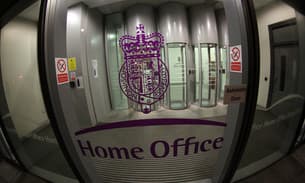Huge variation in police spying powers raises concerns
Accessing communications data is now a routine part of fighting crime
Research by the Bureau raises questions over the supervision of police access to phone and email records, as the government prepares to expand the access police and other authorities have to communication data.
Freedom of Information requests reveal worrying inconsistency in how often police forces are granted permission to access phone and email records under Regulation of Investigatory Powers Act (RIPA).
In some forces, applications were rejected well over a quarter of the time due to a ‘particularly robust’ screening process, while in other forces virtually all applications were approved.
Nick Pickles, Big Brother Watch
Of over 31,000 applications made by South Yorkshire Police in a four-year period between 2007 and 2010, just 48 were rejected – 0.15% of all applications. Merseyside Police rejected 228 of almost 48,000 applications.
A spokesman for South Yorkshire Police said: ‘All forces are inspected by the Office of Surveillance Commissioner or the Interception of Communications Commissioners Office. Any issues of concern would be highlighted by them and addressed by the force concerned.’
By contrast, Kent Police rejected 6,832 of nearly 22,000 applications – over 30% of all applications it received. Although Wiltshire handled a fraction of the number of applications – 2,131 – it rejected more than a quarter of them.
Assistant Chief Constable Gary Beatridge, head of the Kent and Essex Serious Crime Directorate, told the Bureau: ‘The reason why there is a high number of declined applications in Kent, compared with some other forces, is because the accredited authorising officer is particularly robust when assessing the content of each application.’
He added that officers were given an explanation for the rejection and were allowed to revise and re-submit their application.
Nick Pickles, campaign director of campaigning group Big Brother Watch, said: ‘At a time when the Home Office is trying to argue for even more information about our communications to be held, it is deeply concerning that the existing regime for regulating when that data is handed over is so dysfunctional.
‘Before any more data is collected, we need to review the current legal framework as it is impossible to say that due process is not being compromised by over-zealous police forces.’
Eric King, research director of Privacy International, said: ‘RIPA’s authorisation regime is amongst the weakest in the world and enables government access to information, with barely any real restrictions.’
Police and other public bodies lodge over half a million applications every year to access records showing basic information about calls, texts, emails and web searches. This doesn’t let authorities listen in on phonecalls or read emails or text messages – which requires sign-off from the home secretary – but it can reveal who an individual has been in contact with, and where they were at particular times.
The Interception of Communications Commissioner, Sir Paul Kennedy, oversees access to communications data in the UK. He said in his last report that his inspectors had found, ‘communications data is being obtained lawfully and for a correct statutory purpose’ by police forces, adding: ‘Generally a good level of independence and objectivity exists’ in the application process.
But privacy campaigners have called this independence into question. Last year, privacy group Liberty called for warrants to be authorised by outside bodies, and in some cases to be approved by magistrates.
The new plans, which were widely reported early this week, are said to include police powers to access call, text and email records, social media accounts, and web histories, all in real time. After widespread outcry the government announced the plans would be put to public consultation rather than being announced in the Queen’s speech as initially reported.
A Home Office spokesman said: ‘It is vital that police and security services are able to obtain communications data in certain circumstances to investigate serious crime and terrorism and to protect the public. We need to take action to maintain the continued availability of communications data as technology changes.’




